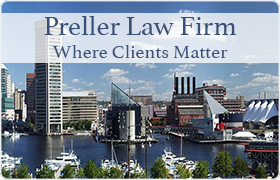Fort Howard Criminal Lawyer, Maryland, page 2
Sponsored Law Firm
-
 x
x

Click For More Info:
-
Preller Law Firm
218 E. Lexington Street Suite 700 Baltimore, MD 21202 » view mapCriminal Defense, DUI, Domestic Violence, Felony Defense Against Misdemeanor and Felonies
With over 60 years of combined criminal law experience, our attorneys will build an aggressive legal strategy that is designed to succeed.
800-723-9370  Patrick Preller Baltimore, MD
Patrick Preller Baltimore, MDAttorney At Law - MD, 1998
University of Baltimore School of Law
 Like Us on Facebook!
Like Us on Facebook!The Preller Law Firm is dedicated to serving the residents of Maryland.
Ray Mcveigh Shepard
Lawsuit & Dispute, Employment, Criminal, Accident & Injury
Status: In Good Standing
Susan Ann Fales Smith
Litigation, Lawsuit & Dispute, Criminal, Bankruptcy
Status: In Good Standing Licensed: 22 Years


 Patrick Preller Baltimore, MD
Patrick Preller Baltimore, MD Like Us on Facebook!
Like Us on Facebook!
